Filter by
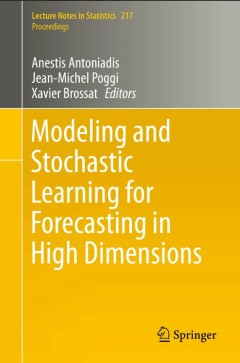
Modeling and Stochastic Learning for Forecasting in High Dimensions
The chapters in this volume stress the need for advances in theoretical understanding to go hand-in-hand with the widespread practical application of forecasting in industry. Forecasting and time series prediction have enjoyed considerable attention over the last few decades, fostered by impressive advances in observational capabilities and measurement procedures. On June 5-7, 2013, an internat…
- Edition
- 1
- ISBN/ISSN
- 978-3-319-18731-0
- Collation
- X
- Series Title
- Lecture Notes in Statistics
- Call Number
- -
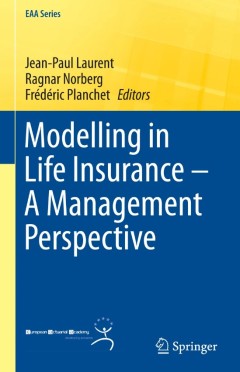
Modelling in Life Insurance – A Management Perspective
Focusing on life insurance and pensions, this book addresses various aspects of modelling in modern insurance: insurance liabilities; asset-liability management; securitization, hedging, and investment strategies. With contributions from internationally renowned academics in actuarial science, finance, and management science and key people in major life insurance and reinsurance companies, ther…
- Edition
- 1
- ISBN/ISSN
- 978-3-319-29774-3
- Collation
- XVI, 255
- Series Title
- EAA Series
- Call Number
- -
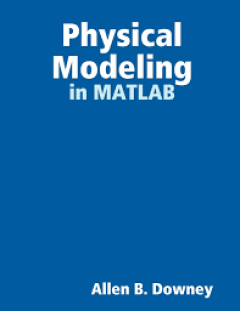
Physical Modeling in MATLAB
Most books that use MATLAB are aimed at readers who know how to program. This book is for people who have never programmed before. As a result, the order of presentation is unusual. The book starts with scalar values and works up to vectors and matrices very gradually. This approach is good for beginning programmers, because it is hard to understand composite objects until you understand basic…
- Edition
- -
- ISBN/ISSN
- -
- Collation
- -
- Series Title
- -
- Call Number
- 005 DOW p
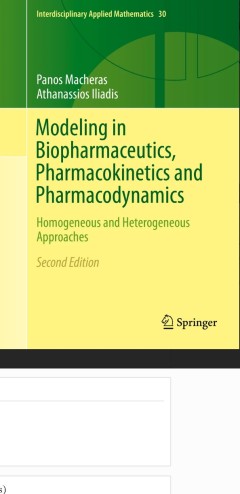
Modeling in Biopharmaceutics, Pharmacokinetics and Pharmacodynamics
The state of the art in Biopharmaceutics, Pharmacokinetics, and Pharmacodynamics Modeling is presented in this new second edition book. It shows how advanced physical and mathematical methods can expand classical models in order to cover heterogeneous drug-biological processes and therapeutic effects in the body. The book is divided into four parts; the first deals with the fundamental princ…
- Edition
- 2
- ISBN/ISSN
- 978-3-319-27596-3
- Collation
- XXII, 483
- Series Title
- Interdisciplinary Applied Mathematics
- Call Number
- -
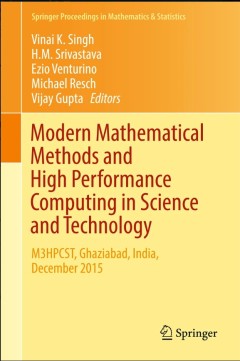
Modern Mathematical Methods and High Performance Computing in Science and Tec…
The book discusses important results in modern mathematical models and high performance computing, such as applied operations research, simulation of operations, statistical modeling and applications, invisibility regions and regular meta-materials, unmanned vehicles, modern radar techniques/SAR imaging, satellite remote sensing, coding, and robotic systems. Furthermore, it is valuable as a ref…
- Edition
- 1
- ISBN/ISSN
- 978-981-10-9358-6
- Collation
- XXI
- Series Title
- Springer Proceedings in Mathematics & Statistics
- Call Number
- -
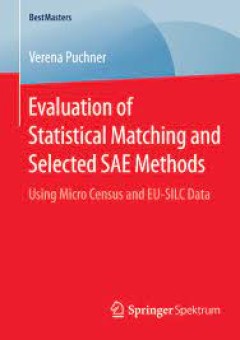
Evaluation of Statistical Matching and Selected SAE Methods Using Micro Cens…
Verena Puchner evaluates and compares statistical matching and selected SAE methods. Due to the fact that poverty estimation at regional level based on EU-SILC samples is not of adequate accuracy, the quality of the estimations should be improved by additionally incorporating micro census data. The aim is to find the best method for the estimation of poverty in terms of small bias and small var…
- Edition
- -
- ISBN/ISSN
- 978-3-658-08224-6
- Collation
- 6 b/w illustrations
- Series Title
- -
- Call Number
- -

Modèles aléatoires en Ecologie et Evolution
Le but du livre est de définir et développer une grande gamme d'outils probabilistes pour la modélisation en biologie des populations, afin de décrire des dynamiques temporelles de quantités biologiques telles que la taille d'une ou plusieurs populations, la proportion d'un allèle dans une population ou la position d'un individu. En partant de modèles markoviens discrets (marches alé…
- Edition
- 1
- ISBN/ISSN
- 978-3-662-49454-7
- Collation
- XII, 267
- Series Title
- Mathématiques et Applications
- Call Number
- -
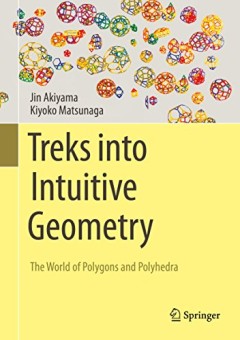
Treks into Intuitive Geometry The World of Polygons and Polyhedra
Is a unique book combining the rich mathematical content of polygons and polyhedra, in a writing style that appeals to all readers Shows how the world of polygons and polyhedra connects to the world of aesthetics, with an interplay between mathematics and art Introduces a history of old mathematical problems and explains such problems in a fresh, enticing manner Presents non-trivial mathematica…
- Edition
- 1
- ISBN/ISSN
- 978-4-431-55843-9
- Collation
- XV, 425
- Series Title
- -
- Call Number
- -
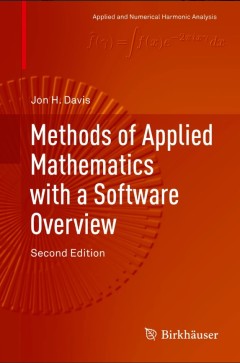
Methods of Applied Mathematics with a Software Overview
This textbook, now in its second edition, provides students with a firm grasp of the fundamental notions and techniques of applied mathematics as well as the software skills to implement them. The text emphasizes the computational aspects of problem solving as well as the limitations and implicit assumptions inherent in the formal methods. Readers are also given a sense of the wide variety of p…
- Edition
- 2
- ISBN/ISSN
- 978-3-319-43369-1
- Collation
- XVII, 781
- Series Title
- Applied and Numerical Harmonic Analysis
- Call Number
- -
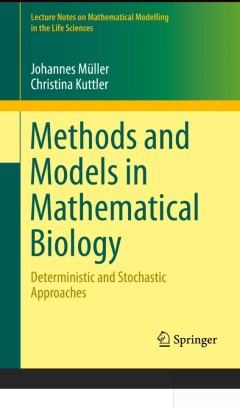
Methods and Models in Mathematical Biology
This book developed from classes in mathematical biology taught by the authors over several years at the Technische Universität München. The main themes are modeling principles, mathematical principles for the analysis of these models and model-based analysis of data. The key topics of modern biomathematics are covered: ecology, epidemiology, biochemistry, regulatory networks, neuronal networ…
- Edition
- 1
- ISBN/ISSN
- 978-3-642-27250-9
- Collation
- XIII, 711
- Series Title
- Lecture Notes on Mathematical Modelling in the Life Sciences
- Call Number
- -
 Computer Science, Information & General Works
Computer Science, Information & General Works  Philosophy & Psychology
Philosophy & Psychology  Religion
Religion  Social Sciences
Social Sciences  Language
Language  Pure Science
Pure Science  Applied Sciences
Applied Sciences  Art & Recreation
Art & Recreation  Literature
Literature  History & Geography
History & Geography